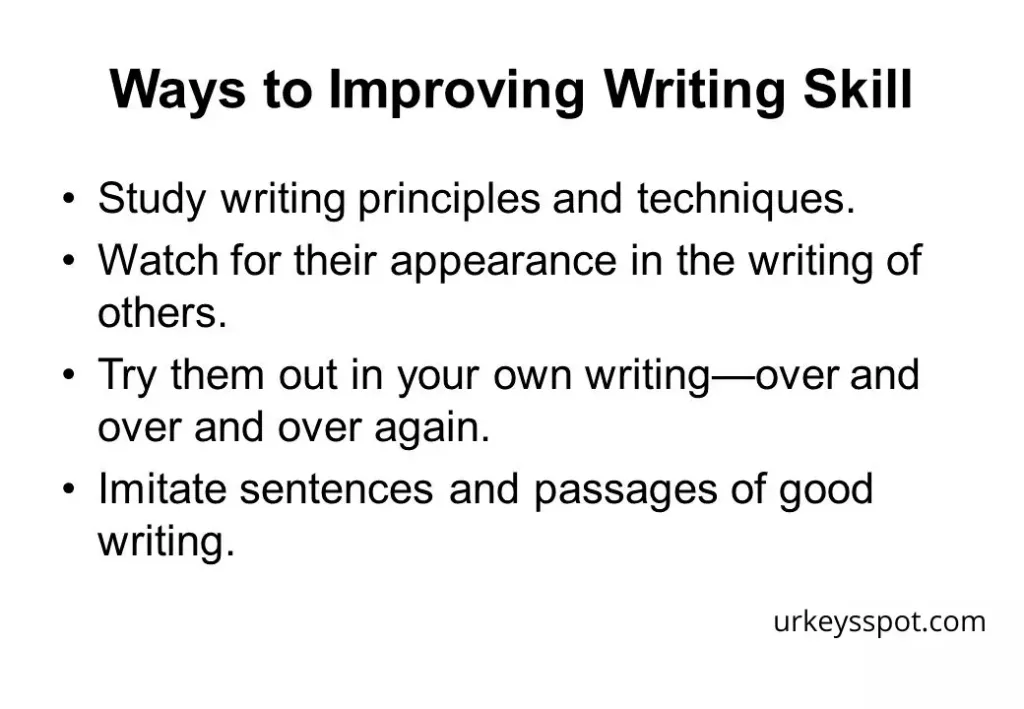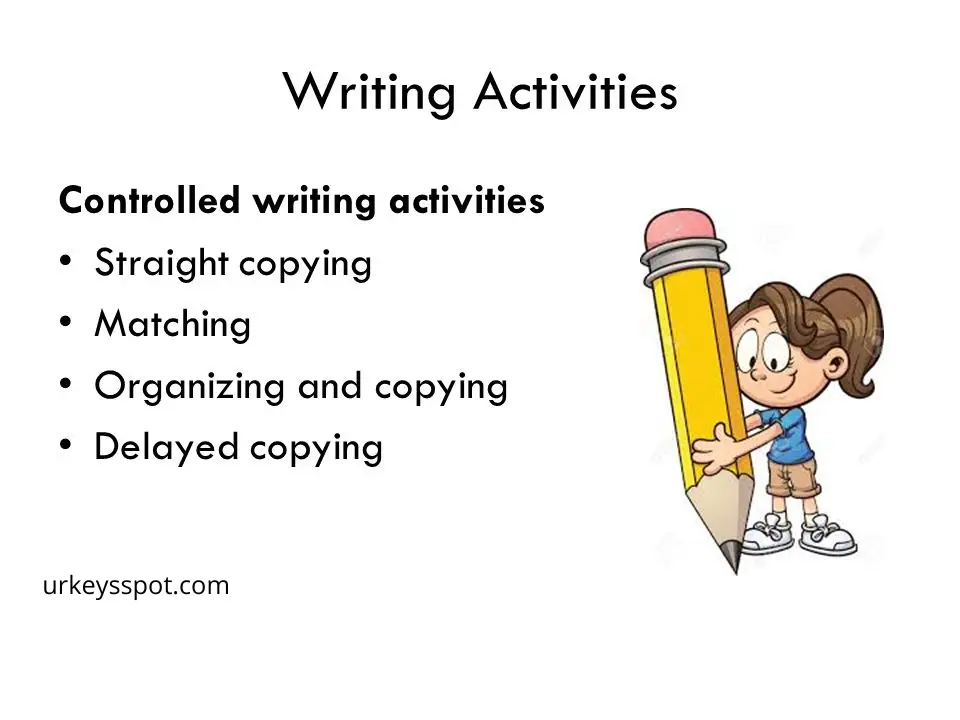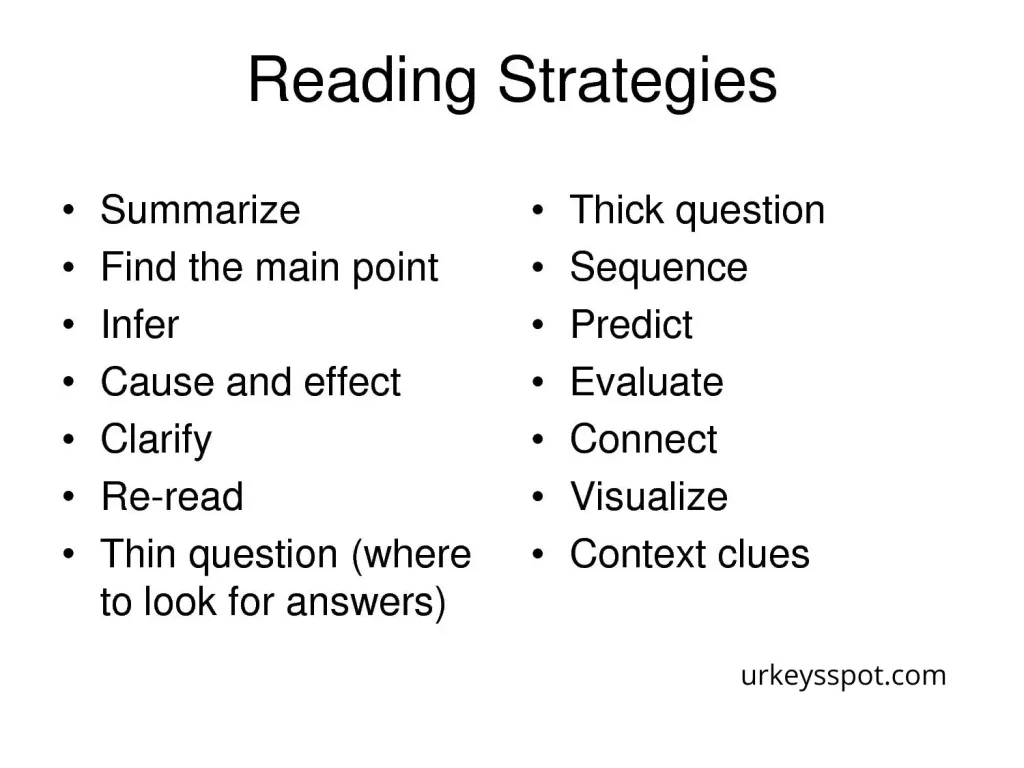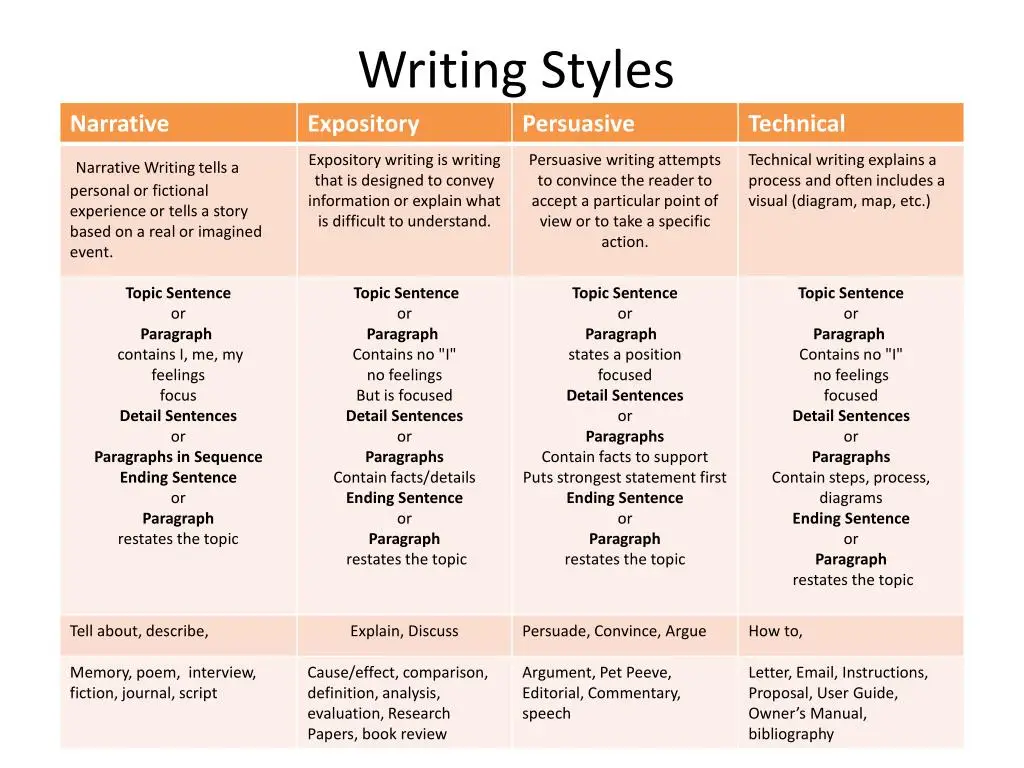In the quest to enhance our written English, mastering the art of stringing words together effectively is akin to a painter skillfully blending colors on a canvas. Whether it’s for acing a job application, crafting an eloquent email, or simply articulating thoughts more clearly, the ability to write well is undeniably a powerful skill in today’s world. This comprehensive guide is designed to steer you through various strategies and tips to polish your written English, making your communication not just correct but compelling. From grappling with grammar to expanding your vocabulary and beyond, we’re here to illuminate the path to written eloquence. So, let’s embark on this linguistic journey, shall we?
Introduction
Improve Your Written English: A Comprehensive Guide

Welcome to your transformative journey toward improving your written English! This guide is your beacon in the vast sea of words, sentences, and paragraphs that make up the English language. Whether you’re a novice writer aiming to strengthen your foundation or an experienced scribe looking to refine your skills, the insights shared here are tailored to elevate your writing prowess.
Understanding the Importance of Effective Written English
In today’s digitally connected world, the pen is mightier than ever before. Effective written English not only opens doors to opportunities but also enhances your ability to communicate ideas succinctly and persuasively. From professional emails to captivating stories, the power of well-crafted words is immense, shaping perceptions and influencing decisions.
What You Will Learn from This Guide
Embark on a literary expedition to explore the core elements of written English. We’ll delve into common pitfalls, grammatical nuances, and the art of vocabulary expansion. Plus, we’ll share actionable tips and techniques to refine your writing, ensuring it’s not just understood but also appreciated. So, buckle up and prepare to transform your written word into a compelling narrative that resonates and inspires.
Identifying Common Challenges in Written English
Common Pitfalls in Written English
Diving into the world of written English, we often stumble upon a few common roadblocks. Recognizing these hurdles is the first step toward overcoming them. Let’s unpack some typical challenges that might be muddying up your written masterpieces.
- Grammar Mistakes: Ah, the bane of many a writer’s existence! From pesky subject-verb agreements to the mysterious realm of comma usage, grammar mistakes can throw a wrench in the works of your writing clarity. Fear not, though, as we’ll tackle these grammatical gremlins head-on.
- Vocabulary Limitations: Ever felt like you’re using the same old words repeatedly? Expanding your vocabulary isn’t just about impressing others; it’s about finding the precise word that captures the essence of your thoughts, adding richness and color to your writing.
- Clarity and Conciseness Issues: Ever read a sentence so long and convoluted that you need a map to navigate through it? Clarity and conciseness are your allies in conveying your message effectively, ensuring your readers aren’t lost in a labyrinth of words.
Analyzing Your Own Writing

Now, don’t just nod along—dive into your own writing! Dig out old emails, essays, or diary entries. Spot any recurring grammar mistakes? Do your sentences meander like a lazy river? Identifying your own writing patterns and pitfalls is a giant leap toward improvement. Keep an eye out for those repetitive words or convoluted sentences, and remember, self-awareness is a writer’s best friend. By critiquing your work, you’re laying the foundation for significant growth in your written English skills. So, grab your literary shovel, and let’s start digging for those improvement gems!
Building a Strong Foundation
Grammar Essentials
To navigate the vast ocean of written English, a sturdy grammar compass is essential. Understanding the basics—like the difference between “your” and “you’re”—can make a world of difference in your writing. Let’s explore some grammar essentials:
- Verb Tenses: The timeline of your narrative hinges on verb tenses. Whether you’re recounting a past adventure, describing the present, or forecasting the future, the correct tense ensures your readers are right there with you, in the moment.
- Sentence Structure: The architecture of your sentences lays the groundwork for clear communication. Mastering the art of constructing a variety of sentence types—simple, compound, complex, oh my!—can add rhythm and dynamism to your prose.
- Punctuation: These little symbols—commas, periods, semicolons, and their friends—can dramatically alter the meaning of your sentences. They’re like traffic signals, guiding readers through your thoughts, so getting them right is crucial.
Expanding Your Vocabulary
A rich vocabulary allows you to paint more vivid pictures with your words. It’s like having a more colorful palette at your disposal:
- Contextual Learning: Encounter a new word? See it in action within a sentence or a paragraph. Context clues can be powerful teachers, helping you grasp the nuances of a word’s meaning.
- Using Thesauruses and Dictionaries: These tools are treasure troves of language. A thesaurus can offer synonyms to spice up your writing, while a dictionary can deepen your understanding of a word. For instance, exploring the Merriam-Webster Dictionary can significantly aid in expanding your vocabulary. Just don’t go overboard and turn your piece into a jargon-stuffed sandwich!
Reading to Improve Writing

Absorbing the written works of others can subconsciously bolster your own writing skills. It’s like osmosis for written English:
- Choosing the Right Materials: Select readings that challenge and interest you. Whether it’s a gripping novel, a thought-provoking article, or an insightful blog post, diverse reading materials can provide a wealth of writing styles and vocabularies to learn from.
- Active Reading Techniques: Don’t just pass your eyes over the text—engage with it. Ask questions, summarize paragraphs in your mind, and note how authors structure their arguments or narratives. This active engagement makes the reading process a dynamic learning experience.
By fortifying your grammar, enriching your vocabulary, and diving into the world of reading, you’re setting the stage for a dramatic improvement in your written English. Remember, every great writer was once a learner, just like you.
Practical Writing Tips and Techniques
Writing with Clarity and Precision
Clarity and precision are the hallmarks of excellent written English. They transform your writing from good to great, ensuring your message isn’t just received but also understood and appreciated. Let’s unravel some techniques to achieve this:
- Avoiding Ambiguity: Your words should be as clear as a bell, leaving no room for misinterpretation. Be specific. Instead of saying “many people,” specify whether it’s dozens, hundreds, or thousands. Precision eliminates confusion and strengthens your argument.
- Sentence Variation: Monotony is a mood killer in writing. Mixing short, punchy sentences with longer, more descriptive ones keeps your readers engaged and your writing dynamic. It’s like adding different spices to a dish to enhance its flavor.
The Art of Revision and Editing
Think of your first draft as a rough diamond. Revision and editing are the processes of cutting and polishing that diamond to make it shine. Here’s how to embrace the art of refining your work:
- Self-Editing Techniques: Put on your editor’s hat and scrutinize your draft with a critical eye. Look for redundancies, unclear phrases, and awkward sentence structures. Don’t be afraid to cut out the fluff; if a word or sentence doesn’t add value, it’s just taking up space.
- Peer Reviews: A fresh set of eyes can catch things you might overlook. Whether it’s a friend, a colleague, or a writing group, getting feedback from others can provide invaluable insights and perspectives on your writing.
Utilizing Writing Tools and Resources
In this digital age, a plethora of tools and resources are at your fingertips to aid in your writing journey. Here’s how to make the most of them:
- Grammar Checkers: Tools like Grammarly or the Purdue Online Writing Lab (OWL) can be lifesavers, catching those pesky grammatical errors and offering suggestions for improvement. Especially when you’re aiming to enhance your understanding of grammar essentials, resources like OWL provide comprehensive grammar and writing guidelines that are immensely helpful.
- Writing Apps: Apps like Scrivener or Google Docs not only provide a platform for writing but also offer features like organization tools, research folders, and the ability to track changes and comments, making the writing process more streamlined and efficient.
By implementing these practical writing tips and techniques, you’re well on your way to crafting written English that’s not just correct but also compelling and clear. Remember, writing is a craft, and like any craft, it requires patience, practice, and a willingness to learn and improve.
Advanced Writing Skills
Developing a Unique Writing Style

Elevating your written English involves more than just mastering the basics; it’s about developing a unique voice that resonates with your readers. Here’s how you can start to carve out your distinct writing style:
- Voice and Tone: Your writing voice is your identity on paper. It’s influenced by your choice of words, your sentence structure, and the rhythm of your prose. Tone, on the other hand, adapts to the context and audience—be it formal, informal, humorous, or serious. Experiment with different styles until you find one that feels authentically you.
- Persuasive Writing Techniques: Whether you’re writing a persuasive essay or a compelling blog post, the art of persuasion is a valuable skill. Use clear arguments, back up your claims with evidence, and employ rhetorical strategies like ethos, pathos, and logos to sway your readers.
Technical Writing vs. Creative Writing
Understanding the nuances between technical and creative writing can enhance your versatility as a writer:
- Technical Writing: This style focuses on clarity, precision, and directness. Often used in manuals, reports, and how-to guides, it’s about conveying complex information in an accessible way. Emphasize clear language, logical organization, and thorough explanation.
- Creative Writing: Here’s where you can let your imagination soar. Creative writing is all about storytelling, character development, and evoking emotions. While creativity is key, don’t forget the importance of coherent structure and clear narrative progression.
Developing advanced writing skills involves a balance of understanding your audience, refining your voice, and mastering different writing styles. Whether you’re drafting a technical report or penning a short story, the goal is the same: to communicate your message effectively and leave a lasting impact on your readers.
Practice Makes Perfect
Regular Writing Practice
Just like a musician practicing scales or an athlete running drills, a writer must hone their craft through regular practice. Consistent writing not only sharpens your skills but also builds confidence in your ability to express yourself in written English.
- Writing Prompts: Engage with daily or weekly writing prompts to challenge your creativity and skills. Prompts can be found in books, online forums, or writing apps, offering a springboard for your imagination and a testbed for new techniques.
- Daily Writing Habits: Set aside dedicated time each day for writing. It doesn’t have to be a novel’s worth of words; even a few sentences daily can make a significant difference. Over time, this routine builds a wealth of experience, making writing a more natural and fluid process.
Seeking Feedback and Continual Learning
The journey to improving your written English is continuous, with feedback and learning as your trusty companions.
- Joining Writing Groups: Surround yourself with fellow writers who can offer constructive criticism and encouragement. Writing groups—be they local or online—provide a sense of community and a platform for sharing experiences and insights.
- Online Courses and Workshops: The digital world is brimming with resources to enhance your writing skills. For example, websites like Daily Writing Tips offer daily writing tips and exercises, providing a valuable resource for writers seeking to improve their craft through regular practice and learning.
Embracing regular practice and being open to feedback are pivotal steps in evolving as a writer. As you continue to write, seek guidance, and learn, you’ll find that your written English not only improves but also becomes a more potent tool for articulating your thoughts and ideas effectively.
FAQs
In our journey to enhance our written English, a few questions commonly bubble up, seeking clarity. Here are some of the most frequent inquiries along with succinct answers to guide you further.
- How can I improve my grammar and punctuation?
Dive into grammar books, utilize online resources like the Purdue Online Writing Lab (OWL), and practice regularly. Writing daily and getting feedback can dramatically sharpen your grammar skills. - What are the best resources to expand my vocabulary?
Read voraciously across genres, use a thesaurus, and play word games. Engaging with diverse reading materials introduces you to new words in context, enhancing your vocabulary naturally. - How often should I practice writing?
Daily practice is ideal. Even if it’s just a few sentences, the consistency will significantly improve your fluency and comfort with written English over time.
conclusion
In this comprehensive guide, we’ve traversed the landscape of improving your written English, touching on the foundational pillars of grammar, vocabulary, and the nuances of various writing styles. We’ve explored practical techniques to enhance clarity and precision and delved into advanced skills that give your writing a unique voice and persuasive power. Regular practice and a commitment to continual learning and feedback have been emphasized as key to evolving your writing prowess.
By now, you should feel equipped with a toolkit of strategies and insights to elevate your written English. Remember, the journey of writing is one of perpetual growth and discovery. Each word you write, every piece of feedback you consider, and all the knowledge you accumulate contribute to your development as a writer. Embrace the process, stay curious, and let your written words reflect the depth of your thoughts and the breadth of your imagination. Your path to writing mastery is an ongoing narrative, one that you craft daily with diligence, creativity, and an open mind.

